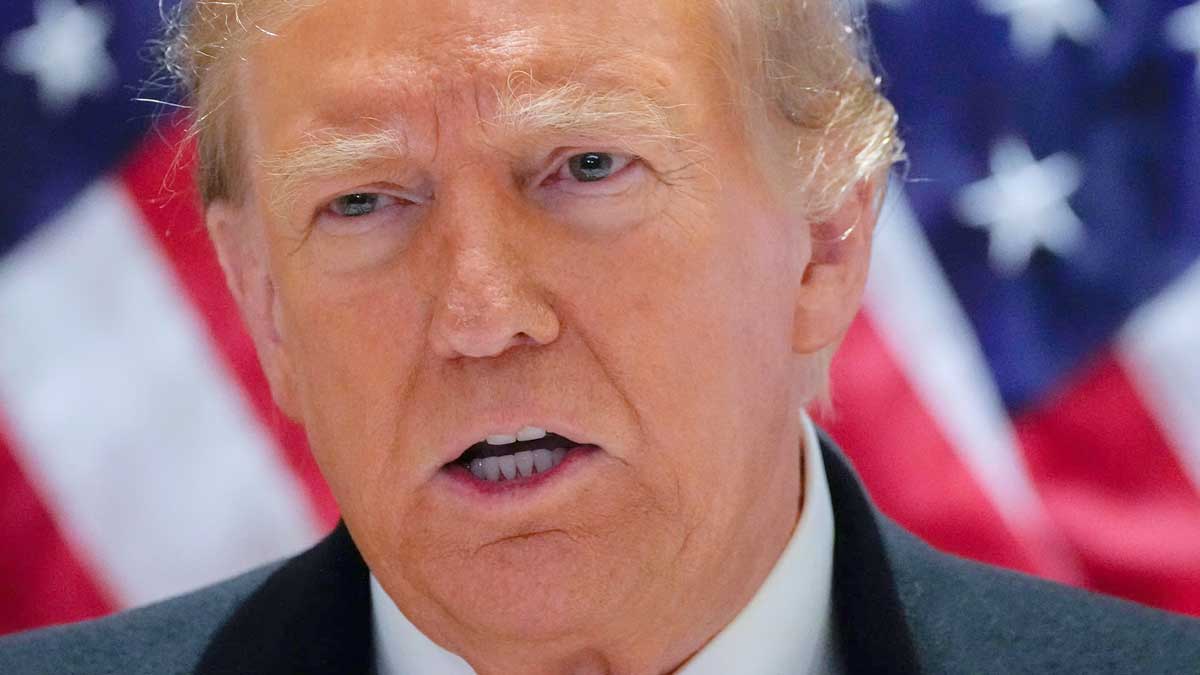- Home
- Billionaires
- Investing Newsletters
- 193CC 1000
- Article Layout 2
- Article Layout 3
- Article Layout 4
- Article Layout 5
- Article Layout 6
- Article Layout 7
- Article Layout 8
- Article Layout 9
- Article Layout 10
- Article Layout 11
- Article Layout 12
- Article Layout 13
- Article Layout 14
- Article Sidebar
- Post Format
- pages
- Archive Layouts
- Post Gallery
- Post Video Background
- Post Review
- Sponsored Post
- Leadership
- Business
- Money
- Small Business
- Innovation
- Shop
Recent Posts
Republicans Push Election Law Changes for 2024

New Republican-backed election and voting restrictions are set to take effect for the first time in this year’s general election. Lawmakers and voters are considering additional measures opponents say could infringe on voters’ rights and make it harder for Democrats to win, amid continued fallout from former President Donald Trump’s claims of fraud in the 2020 election.
Nebraska: Trump and his allies are pushing the state legislature to switch to a winner-takes-all approach to its electoral college votes rather than granting one vote to the winner of each of its three House districts, a change that would almost certainly guarantee Trump secures all five of its electors—blocking one of President Joe Biden’s clearest paths to victory if he were to win the 2nd District, which voted for him in 2020 and former President Barack Obama in 2008.
Georgia: The Republican-controlled state legislature passed a law in March, awaiting Republican Gov. Brian Kemp’s signature or veto (it’s unclear whether he will sign the bill), that would expand the qualifications for removing voters from the registration rolls using what opponents say are unreliable sources of information, such as the U.S. Post Office’s National Change of Address list, and disproportionately affect younger and poorer voters who tend to move more often.
Wisconsin: Voters approved a GOP-backed amendment to the state constitution Tuesday that would prohibit the use of private money in administering elections, a response to donations received in 2020 from a voter-access nonprofit funded, in part, by Facebook founder Mark Zuckerberg and his wife, Priscilla Chan, which Republicans dubbed “Zuckerbucks,” claiming (without evidence) it was an attempt to skew the vote in favor of Democrats.
Arizona: The GOP-led Arizona House passed legislation last month to place a measure on the November ballot that would limit early mail-in voting, which is currently open to all registered voters, to certain categories, including the elderly, people with disabilities or overseas military—a proposal, if passed by the Senate and greenlit by voters, that would upend the election system in the state, where nearly 90% of voters in 2020 used mail-in ballots.
Nevada: Repair The Vote, a political action committee led by Nevada Republican Club President David Gibbs, is circulating a petition—backed by Trump—to place an initiative on the November ballot that would require voters to show photo identification when voting in person at a polling place, an expansion of current rules that only require voters to provide a signature that matches the one on their voter application or another form of identification.
Key Background: Trump’s voter fraud claims in the 2020 election sparked a string of voting law changes and restrictions Republicans have billed as efforts to strengthen the legitimacy of elections. In 2023, 14 states approved 17 voting laws, according to the progressive nonprofit the Brennan Center for Justice, that will be in effect for the 2024 general election, making it “harder for eligible Americans to register, stay on the voter rolls or vote as compared to existing state law.” North Carolina, for example, eliminated the three-day grace period for receiving absentee ballots, while Georgia tightened its mail-in ballot rules in 2021. Many of the new restrictions have faced legal challenges from advocates who say they are an attack on voting rights, deter or even intimidate voters, and target minorities, young people and low-income voters.
Contrary View: Twenty-three states enacted 53 laws to expand voter access last year, according to the Brennan Center, and all but two will go into effect in the 2024 election. New York passed legislation to require local jails to provide voter registration information to people being released, while Michigan voters now have nine days to cast an early ballot.
Recent Posts
Categories
- 193cc Digital Assets2
- 5G1
- Aerospace & Defense46
- AI37
- Arts3
- Banking & Insurance11
- Big Data3
- Billionaires449
- Boats & Planes1
- Business328
- Careers13
- Cars & Bikes76
- CEO Network1
- CFO Network17
- CHRO Network1
- CIO Network1
- Cloud10
- CMO Network18
- Commercial Real Estate7
- Consultant1
- Consumer Tech180
- CxO1
- Cybersecurity68
- Dining1
- Diversity, Equity & Inclusion4
- Education7
- Energy8
- Enterprise Tech29
- Events11
- Fintech1
- Food & Drink2
- Franchises1
- Freelance1
- Future Of Work2
- Games141
- GIG1
- Healthcare78
- Hollywood & Entertainment186
- Houses1
- Innovation42
- Investing2
- Investing Newsletters4
- Leadership65
- Lifestyle11
- Manufacturing1
- Markets20
- Media193
- Mobile phone1
- Money13
- Personal Finance2
- Policy567
- Real Estate1
- Research6
- Retail1
- Retirement1
- Small Business1
- SportsMoney33
- Style & Beauty1
- Success Income1
- Taxes2
- Travel10
- Uncategorized8
- Vices1
- Watches & Jewelry2
- world's billionaires418
Related Articles
Trump Moves $4B Stake in Truth Social Parent, Stock Drops 6%
Donald Trump recently transferred his 57% stake in Trump Media & Technology...
By 193cc Agency CouncilDecember 20, 2024House Rejects Trump-Backed Funding Bill, Shutdown Looms
The U.S. House of Representatives rejected a new government funding bill on...
By 193cc Agency CouncilDecember 20, 2024Trump Named Time’s Person of the Year for Second Time
On Thursday, Time magazine honored Donald Trump as its “Person of the...
By 193cc Agency CouncilDecember 12, 2024Meta Donates $1 Million to Trump’s Inaugural Fund
Meta, the parent company of Facebook and Instagram, has confirmed a $1...
By 193cc Agency CouncilDecember 12, 2024















Leave a comment